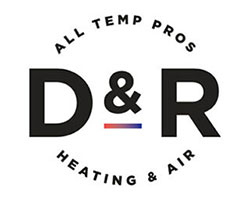Are you looking for a simple and effective way to boost your indoor air quality at home? Whole-house air purifiers are a very good solution for removing contaminants such as allergens, dust, mold and other damaging particles from the air. Purification systems can also remove airborne contaminants such as pet dander, mold spores and smoke, producing a healthier environment for everyone in the home. With the appropriate air purifier, you’ll have a powerful tool in your toolbox for better indoor air quality in Portland.
Let’s explore the features of an air purifier and why they are worth purchasing.
Do Air Purifiers Work?
Air purifiers are extremely good at reducing levels of airborne particles like dust, mold spores, pollen, pet dander and smoke from the air. Some units are even powerful enough to remove extremely small particles, such as those from odors or viruses, from your home’s air.
There are a lot of designs of air purifiers to choose from, ranging from compact, standalone models to whole-house air purifiers that work alongside your central HVAC system. Depending on the type, some purifiers implement effective air filters while others use ultraviolet (UV) light for its sanitation qualities. Some models even use both for the highest air quality benefits.
What Are Air Purifiers for?
Air purifiers draw in air from the nearby environment and trap harmful pollutants and particles as they move through a series of filters. These filters are made of fine mesh or activated carbon that is ideal for catching dust, molds, pet dander, smoke particles, chemicals and other airborne contaminants. The fan in the air purifier then forces clean air directly into the ductwork for circulation.
How Do Air Purifiers Work?
Air purifiers bring in air with a fan before blowing it through one or more filters. Impurities are gradually captured by the layers of filters, and then the newly purified air is blown out of the purifier. Depending on its design, an air purifier may utilize electrical charges or ultraviolet light to take out additional airborne pollutants.
Other types of filtration found in air purifiers:
- High Efficiency Particulate Air (HEPA) filters: One of the most effective filter designs available, HEPA filters are developed to clean out up to 99.97% of particles from the air—as little as 0.3 microns! Remember that such efficiency can also minimize airflow.
- Activated carbon filters: These filters have finely ground activated carbon, which has an electric charge able to attract things like odor particles.
- Photocatalytic oxidation: This process uses UV light to start a reaction that breaks down microorganisms like bacteria, mold and some viruses. With their DNA broken, many microbes can no longer replicate and are effectively done away with.
Should I Get an Air Purifier for Dust?
Air purifiers are developed to help cut down on the quantity of dust in your home, providing relief from allergies and other respiratory issues brought on by airborne particulate matter. By catching particles like dust in their filtration systems, air purifiers can make the air in a room or house less polluted and fresher.
If you’re looking to minimize the dust in your home, get in touch with a certified Lennox dealer to improve your indoor air quality in Portland.
Do Air Purifiers Help with Allergies?
High-efficiency air purifiers are designed to capture more than 99% of pollutants and particles, which means the air you inhale after it goes through an air purifier is considerably cleaner and healthier. This helps diminish symptoms connected to allergies and respiratory illnesses, because it removes potential irritants from the air.
Do Air Purifiers Help with Mold?
Air purifiers continue to be one of the most efficient ways to fight mold. By trapping airborne particles and spores, they help stop mold from becoming a health hazard in confined spaces. Additionally, many purifiers come with other features that are a way to overcome mold, such as activated carbon filters and ultraviolet (UV) lights. Activated carbon filters help get rid of smells and other unwelcome elements from the air, while UV lights can kill any active mold spores in the air. Together, these features allow for a thorough cleaning of the air in your home or office, which is an important way to keep everyone comfortable and healthy.
Can an Air Purifier Take Care of Bad Smells?
Not only do air purifiers help improve air quality by removing particles like dust, pollen, smoke and other allergens from the air, but some air purifiers also help remove any annoying smells that might be stubbornly refusing to leave your home.
Air purifiers use a combination of filters, including activated carbon and HEPA filters, to confine and remove odors from the air. This makes sure that your home will remain smelling fresh and clean without any worry of lingering odors. By making an investment on a whole-home air purifier, you can ensure that your home has optimal indoor air quality and smells fresh and clean all year-round.
